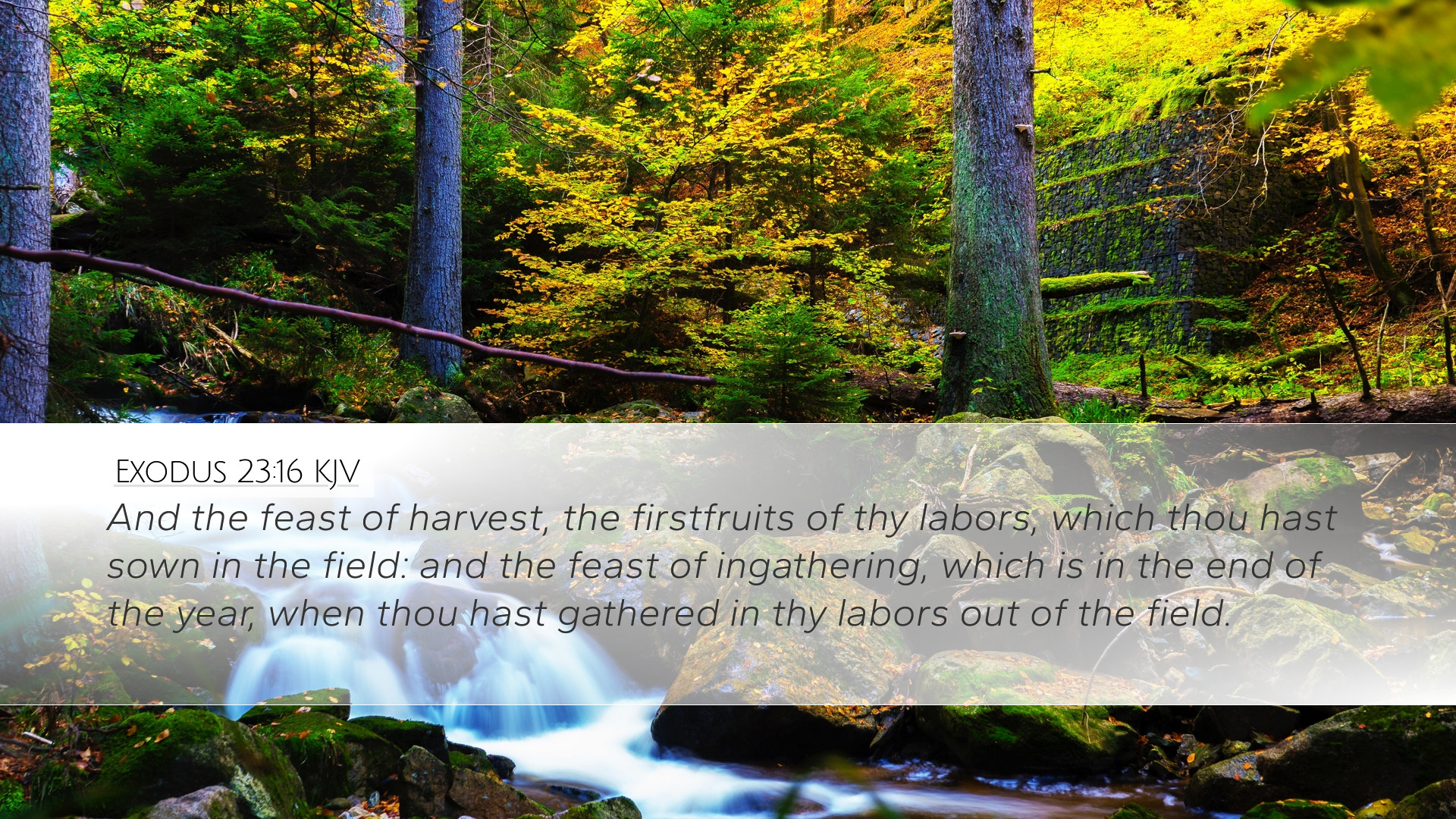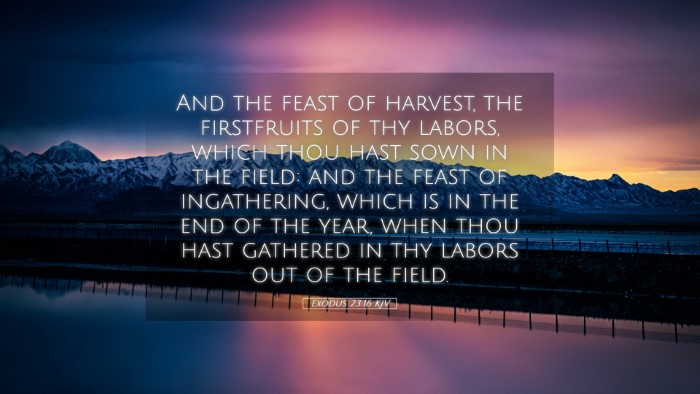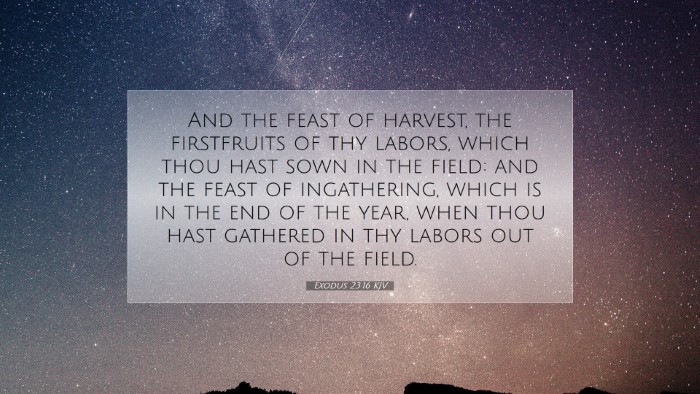Commentary on Exodus 23:16
Bible Verse: Exodus 23:16 - "And the feast of harvest, the firstfruits of your labors, which you have sown in the field: and the feast of ingathering, which is in the end of the year, when you have gathered in your labors out of the field."
Introduction
The verse in Exodus 23:16 highlights two major feasts in the agricultural calendar of ancient Israel: the Feast of Harvest and the Feast of Ingathering. These festivals showcase the cultural, religious, and social life of the Israelites, offering crucial insights into their relationship with God, gratitude for His providence, and the communal aspect of their worship.
Insights from Public Domain Commentaries
1. Overview of the Feasts
-
Matthew Henry:
Henry emphasizes the importance of these feasts as times of rejoicing and thanksgiving. The Feast of Harvest, also known as the Feast of Weeks (Shavuot), occurred seven weeks after Passover and celebrated the first fruits of the grain harvest. Henry notes that these celebrations are not only agricultural in nature but serve as a reminder of God's provision.
-
Albert Barnes:
Barnes explains that the "feast of ingathering" takes place at the end of the agricultural season. This feast corresponds to the Feast of Tabernacles (Sukkot) and was a time to recognize the completion of the harvest and the blessings of the land. He points out that it signifies a time of reflection and a culmination of God's goodness throughout the year.
-
Adam Clarke:
Clarke adds that the observance of these feasts was not merely a ritualistic requirement but also served societal purposes. They reinforced the community's bond as individuals gathered to celebrate, share blessings, and support one another. Clarke emphasizes the spiritual significance of giving thanks to God during these times, attuning hearts to His faithfulness.
2. Theological Implications
-
Matthew Henry:
Henry reflects on the theological implications, illustrating that these festivals call for an acknowledgment of God as the ultimate source of every blessing. The act of bringing the first fruits symbolizes prioritizing God and recognizing His sovereignty over economic and agricultural achievements.
-
Albert Barnes:
Barnes highlights the notion of 'firstfruits' as not just a concept of physical crops but also a principle applicable to all areas of life where believers are called to devote their best to God. This act of devotion serves as a principle for Christian living where the first and best offerings symbolize the whole.
-
Adam Clarke:
Clarke notes the eschatological element found in the instructions concerning harvests and feasts. He interprets the gathering of the harvest as a parallel to God's ultimate gathering of His people, pointing toward the New Testament fulfillment in Christ, reflecting on how Christ is the firstfruits of those who have died (1 Corinthians 15:20).
3. Application for Today’s Believers
-
Matthew Henry:
For contemporary believers, Henry encourages the practice of gratitude and acknowledgment of God's gifts. Questions arise: How do we celebrate God's provisions in our lives? Emphasizing thankfulness in our familial and communal contexts can cultivate a deeper awareness of God's ongoing provision.
-
Albert Barnes:
Barnes urges believers to see every day as a chance to express gratitude for both small and large blessings. He notes that practicing generosity becomes a reflection of God's gifts. Engaging in communal worship akin to the ancient feasts can strengthen faith and community bonds.
-
Adam Clarke:
Clarke's approach resonates with the idea of 'firstfruits' in our life decisions. He challenges readers to think about how they can dedicate their best efforts, time, and talents to God. For example, giving first to spiritual pursuits, service, and love can radically alter one's life trajectory.
Conclusion
Exodus 23:16 serves as a profound text reflecting on Israel's festivals and the deeper meanings associated with them. As presented in the commentaries, the call to celebrate harvests embodies themes of gratitude, community, and divine acknowledgment. For modern believers, these principles remain relevant, urging us to celebrate God's provision actively, practice gratitude, and dedicate our 'firstfruits' to Him.


